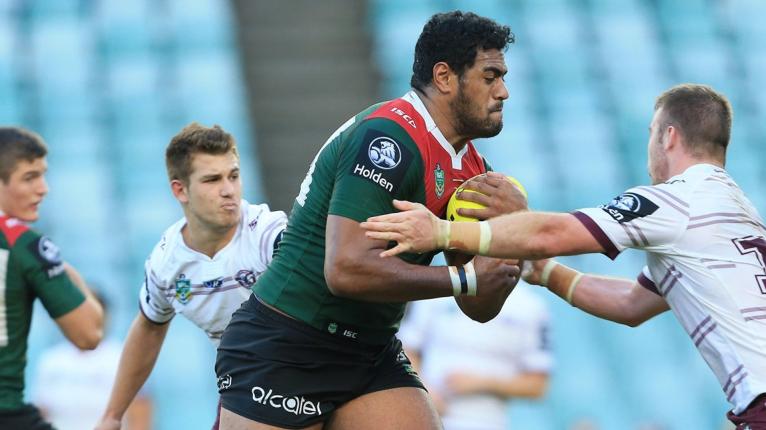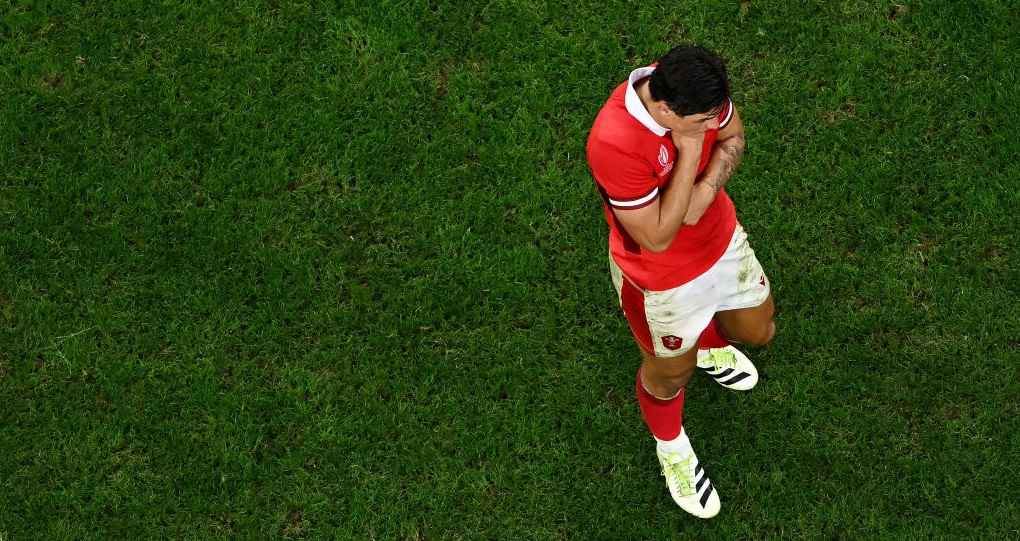The awkward question Louis Rees-Zammit's NFL switch poses

Louis Rees-Zammit’s transition from rugby union to the NFL with the Kansas City Chiefs – if successful – could pose some awkward questions for his former sport.
While he’s yet to play a down of competitive ‘football’ in his new code, the implications of a successful transition for Rees-Zammit for rugby could be at best problematic and at worst help trigger a significant threat to the sport in the long term.
His venture into American football, a domain vastly different in technique, culture, and commercial scale, presents a fascinating case of athletic adaptability and the global mobility of sports talent. While the vast majority of rugby union fans will be cheering the Welshman on to make the Chiefs’ roster this summer – a huge achievement in itself – the blurring of boundaries between rugby and American football offers very little upside for the former.
Should Rees-Zammit secure a berth on an NFL roster as a wide receiver or running back, his potential earnings could significantly eclipse what rugby can currently offer. With average salaries in the positions between $2.5 million to $5 million annually, the $750,000 he was offered move to Japanese rugby now looks like chump change. It is understood that the Chiefs will pay him a sum in this region as part of the three-year deal he signed with them on Friday. And that’s just for starters, should he reach the top of the tree he could theoretically command a figure that is a multiple of rugby’s highest salaries, where roughly $1.2 million has become a de facto, and rarely achieved, ceiling.
Meanwhile, the highest-paid running back in the NFL – San Francisco 49ers’ Christian McCaffrey – is reportedly earning an average annual salary of $16 million (£12.6 million). The highest-paid wide receiver – Tyreek Hill – is on $30 million per annum as part of a deal that could see him earn $120 million over four years.
Eye-watering figures for even the highest-paid rugby stars.
It is no scaremongering to suggest that the NFL, with its colossal financial clout, could increasingly present an irresistible allure for rugby talents seeking new challenges beyond the 15-man game. Rees-Zammit – and the likes of Christian Wade, Daniel Adongo, Christian Scotland-Williamson, Hayden Smith and Lawrence Okoye before him – are all modern guinea pigs – and to use the parlance of another American sport – “one home run” in a skill position could alter how rugby athletes are viewed forever.
This argument might sound alarmist to you. You might point to Jordan Mailata – the giant former South Syndey Rabbitohs U20s player – who has broken through and is now earning $16 million a year after coming through the IPP programme.

The truth was the same size which opened the door to the NFL had closed the door to rugby league. At 6’7 and 140kg plus [at the time] he was simply too big for a career in the NRL, where he was unable to meet the cardio requirements of the fast-paced 13-man code. “Rugby league requires a mix of aerobic and anaerobic fitness,” said Mailata’s former league coach Michael Maguire in an interview with the Player’s Voice back in 2018. “Attack, defend, get back the 10 metres and so on. And that’s not easy when you’re running around at his size.”
His success – and Jarryd Hayne’s to an extent before him – admittedly haven’t opened the floodgates for the hoovering up of NRL athletes by the NFL.
Yet rugby union can offer the NFL something that league can’t: global reach.
Former NFL punter turned pundit Pat McAfee gave a disconcerting insight on his podcast as to how American Football at large might be viewing the venture: “If we can break through on rugby players becoming NFL guys, then the global expansion of the sport will expedite quickly, because rugby is everywhere, seemingly… If this dude [Louis Rees-Zammit] hits, rugby fans everywhere are going to see the highlights… It’s a copycat league too. If this guy has success, especially with the Chiefs too, you’ll see another 30 players get signed by different teams.”
This paradigm shift, where rugby union could inadvertently serve as a talent reservoir for American football, legitimately threatens rugby’s long-term sustainability. The potential success of Rees-Zammit in the NFL could set a precedent, encouraging other franchises to mine rugby union for athletic gems, creating a sudden talent drain away from a sport where superstars are already in relatively short supply.
And what happens when rugby’s best are going to try their hand at American football? The eyeballs of rugby fans – inevitably – will follow too.
If ever there was a set of fans that the NFL might covert, it’s rugby (be it union or league) supporters. The overlaps are obvious. Both are violent contact sports played by explosive, big-bodied athletes. Rugby’s more global appeal – however – offers the NFL a platform for expansion, an expansion that has so far alluded the American sport despite its vast financial leverage.
It’s the figurative equivalent of the NFL psychologically ‘little bro-ing’ rugby. While many American football fans barely have a concept of rugby union as a sport, the NFL could plausibly be seen as the pinnacle of achievement for a generation of aspiring rugby players and fans. How soon until it’s not the Finn Russells of the world that young fans want to emulate, but rather the Patrick Mahomes?
Pessimists might argue that it is a process that is already taking place. The fear is that Rees-Zammit’s success could now accelerate it.
Of course on a human level, it’s hard not to want Rees-Zammit to realise his dream. Aside from his athletic abilities, he’s an utterly likeable young man who is chasing his sporting goals very much against the odds.
It’s also about our collective sporting ego. He’s one of our best and we want him to show the world that he can mix it in the planet’s most lucrative sports league.
As Rees-Zammit navigates his new path in the NFL, we, the rugby community will watch closely. We must however acknowledge that his success could come with a hefty price tag.











































































Was there the same kind of hand wringing (or excitement depending on which side of the discussion you were on) about a exodus from America to rugby when Dan Lyle came over and not only excelled at Bath but actually became team captain?
Average career length in the NFL is 3.3 years. Shorter for running backs (2.6), and wide receivers (2.8). Undrafted players (like LRZ) average is 1.75 years. These lower numbers are offset by kickers, long snappers etc. Rugby career are 3 or 4 times longer.
Average age for NFL draft is 23, which is LRZ's age. However the draft kids are ready for action, with many years of high school and college experience. They still have a steep NFL learning curve, but they have tons of muscle memory and mental models about the game. He does not.
Lets say LRZ gets into the Chiefs practice squad, and maybe makes it to the game day roster for some of the 17-20 games in the 2024-2025 season. And let’s say they give him some snaps as a 1st and 2nd down running back (usually a shared role). That’s maybe 10 or 15 touches per game, maybe 100 for the season. As a wide receiver it’s likely to be less. It could be more if he is picked for more snaps, but he would need to be elite vs some incredible athletes with tons more experience. Unlikely.
And that’s the first year of his 1.75 year NFL career. Of course he could be exceptional and stretch that career to 3 years, or 4. But the chances of him becoming an NFL star, with a long career, are very small indeed.
Even if LRZ can do it, the idea that there could be a trend of many rugby players beating those odds is fanciful.
Why would be stay in Welsh rugby to be coached by a hopeless kiwi ?
There’s no incentive, no passion and little chance of success. Welsh rugby has outsmarted itself.
Watch how many people turn to rugby once Taylor Swift locks eyes with LRZ and starts dating him instead of Kelce.
On the other hand - a rugby player doing well in the NFL opens more American eyes to rugby - its very much a growing interest in the US - just go on youtube and search for rugby reaction videos. There are far more fans for the NFL, so you could make the argument that a rugby player doing well in the NFL and converting 0.5% of the audience to rugby is far more beneficial than vice versa.
I have hated his move from day 1 for many of the reasons you mention here. I’m an American, but I don’t watch American football. I love rugby. I find everything about it vastly more entertaining, from the flow of the game itself, the season points structure, the international nature. It boggles my mind that Americans love our football so much, which is essentially a 3.5 hour advertisement block, with 20 minutes (at best) of gameplay mixed in.
I genuinely don’t understand it, if you want hard contact sport, both codes of rugby and ice hockey are right there (ice hockey has become a niche sport in the USA), and all are faster paced and include more actual gameplay.
What worries and depresses me about LRZ’s move is that, over my adult life (I’m 38) I have watched the NFL devour everything else in America. It’s just such a juggernaut, what was once a diverse and rich sporting culture with different sports for different seasons discussed by fans and the media, it’s all been monopolized by the NFL, with everything else becoming secondary or worse, niche. All the talk in sports media, all year long is the NFL, the people you work with and meet at sports bars just assume you like the NFL, the mainstream media discusses it daily, you literally can’t avoid it. I really don’t want it to start taking on and taking away from international sport as well, but I truly fear, if this works for him, the NFL will start to devour rugby.
American football was born from rugby, a defective problem child of sorts and I do truly worry the child will now try to kill the parent.
What is the obsession with NFL?
This is old news. Since Naas Botha had a crack at it back in the days when my parents watched Dallas on TV. Hardly posed any threats since then.
I can absolutely assure everyone that America has more than enough talent (people who can run very fast into a wall of people wearing a helmet and shoulder pads).
Rugby will be jussst fine!
And if they do run into any shortages, they’ll likely just poach South Africans and Pasifika players anyway.
He’s not even on the practice squad yet, never mind going to get game-time. Let’s slow down a little shall we. They’ve decided he’s worth looking at, that’s all. I wish him every success but it’s not the first time a rugby player has got this far, lets wait and see how far he goes before predicting doom for rugby.
Perhaps we should be looking at it the other way. Do you have any idea of the amazing athletes who aren’t good enough for the NFL who could have a pathway to rugby?